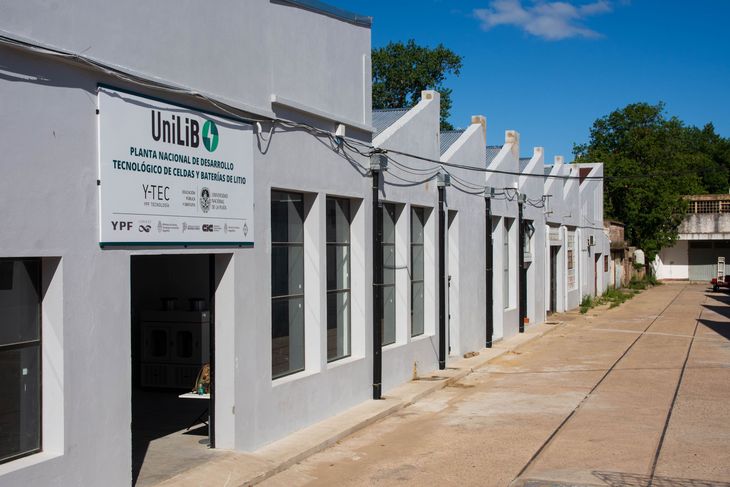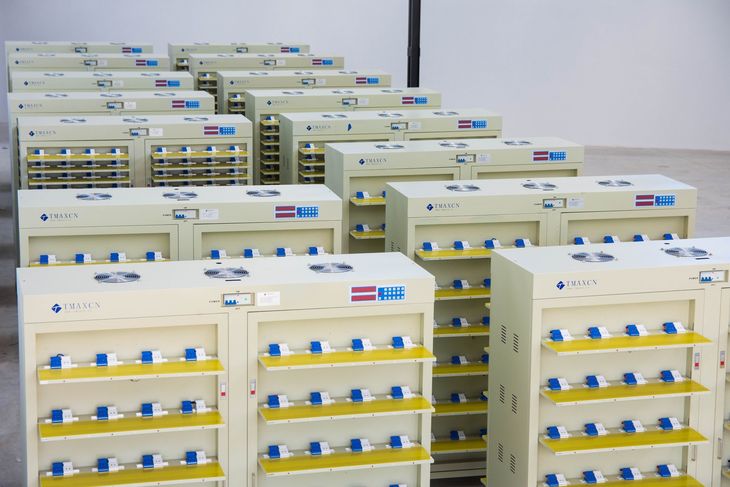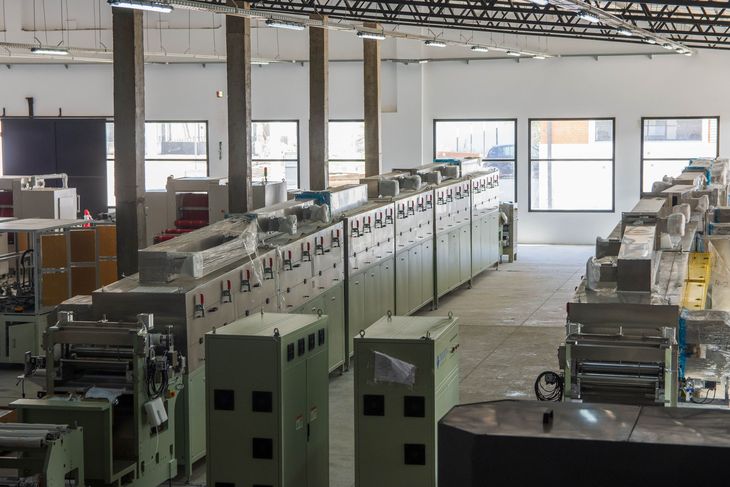Lithium battery factory: opens in September and will have 50% local integration
state company Y-TECYPF’s technology arm, will launch its first lithium battery unit in September, located in La Plata, Buenos Aires province. While in 2024 another factory will be launched, in Santiago del Estero, five times larger. “We want to position ourselves as leaders in lithium industrialization in the region”He claimed Roberto Salvarezza, president of Y-TEC and YPF Litio, in an interview with Ámbito. He predicted that they are running three projects to develop local suppliers and aim for 50% of the battery to be national.
His case will be very different Santiago del Estero, the opening of which is expected in 2024, given that, although 10 million dollars have already been invested in the purchase of equipment, it is under construction. The difference is that it will be five times larger, because it is a 75 megawatt-year plant, capable of producing batteries to power 10,000 homes or 2,000 vehicles.
In this case, the goal is progress for the electrification market: “Electric motorcycle companies, buses, car terminals and the armed forces have already come to ask when the batteries will be ready,” said Salvarezza.
When asked if the goal is to be able to export, the former science minister said the current horizon is to “feed local demand” and then target the region: “In Argentina we have comparative advantages. We have car terminals and lithium. Chile has lithium but not the industry, while Brazil has the industry but has yet to exploit its lithium. We must become the country that produces batteries for the region”. However, Salvarezza is also following the regional agenda so that Argentina is not left behind: in Chile, they have chosen Byd, the world’s largest producer of electric cars, to design a project to produce 50,000 tons of LFP-type cathode material, which is part of the battery. Byd also bought the former Ford factory in Brazil for the production of electric cars. “Our neighbors are in a hurry”expected.
When asked about the competitiveness of production, Salvarezza recalls the case of Vaca Muerta. “There when we started we were more expensive than in the United States. But there was a learning curve, consistency in process and associations with private companies like Chevron at the time. All kinds of strategies are also considered here,” he explained.
Local suppliers
But, in addition, there is another factor that Salvarezza believes will contribute to competitiveness: “When we manage to scale production and increase the integration of national inputs, we will be more competitive. But you learn everything when you start producing.” That’s why they continue three projects to develop local suppliers.
In the case of lithium, Y-TEC signed a contract with the American company Livent, which mines the mineral in Catamarca, and which for the first time sold part of its production to Argentina. For Salvarezza, in order for industrialization to increase in scale, it should be ensured that part of the production is sold in the local market.
The technology they chose for the batteries is called LFP, since it contains iron, lithium and phosphate, which allows a greater degree of national and regional integration. “LFP is 30% of the cost of a battery. It is true that some lithium is needed. But it is the most expensive. A ton of lithium can cost more than US$30,000 and is found in Argentina. While the ton of iron and phosphates must be imported, but they are available in the region and their cost does not exceed US$3,000 per ton. In fact, they are already on the market in Argentina for the steel industry and the agricultural industry,” explained Salvarezza, adding that this technology was chosen because it is “safer and less polluting” and is the one used by brands such as Tesla, Ford, or General Motors.
Although for the first battery production LFP was introduced, in October it will be inaugurated at the Y-TEC headquarters in La Plata a pilot plant producing LFP locally. It will be 30 tons per year to supply the production of the cells. In addition, Y-TEC is in negotiations with a A Chinese company will produce LFP on a scale of 60,000 tons, in a new factory in Katamarka. Although LFP is part of the battery, it means more industrialization than the currently mined lithium carbonate. This is a market that is currently worth $10 billion worldwide and is expected to reach $50 billion by 2028.
But Y-TEC’s bet is to add local suppliers. “50% of the battery cost could be done with national inputs”Salvarezza said. One case is that of the aluminum sheets that go inside the battery. The owner of the Y-TEC was located in Puerto Madryn in the Argentinian company Aluar. “We haven’t signed any contract, but there is interest from both sides,” he said.
Another case is his graphite, basic material in the anode part of the battery. Although this feedstock is not produced in Argentina, Y-TEC operates a project to produce artificial graphite, from calcined coke from the YPF refinery. They took it to the Coal Institute in Spain to see if they could run a chemical process on it. “We tested it and it works, now we are looking for companies that want to develop this process here,” explained Salvarezza.
After all, there is the electrolyte project, another of the battery materials. At this time, the Atomic Energy Commission began to produce it, on a laboratory scale. It is that while there are materials that could be sourced locally, such as polypropylene in the case of spacers, there are inputs that currently have to be imported, such as copper.
Post-election industrialization
On the future of the projects in case the government changes, Salvarezza replied that bets that there is some institutionality, because the universities are also part of it, as in the case of La Plata, which is autonomous. The same in the case of the provinces, where the same provincial governments continue, as in Santiago del Estero. “In Vaca Muerta, the previous government did not back down, we hope these projects continue, we would like to hear what development model the opposition has,” he said.
The issue he believes could slow down the scale of local industrialization is, ironically, the supply of lithium. It is that the Frente de Todos intended to pass a bill guaranteeing that mining companies have sales quotas for the local market, at a preferential price. The project never reached Congress. “Without a framework that guarantees lithium, it will be difficult to develop at scalebecause you don’t know if they will want to sell you, because the companies have already signed contracts with the countries that want to produce the batteries, such as China, the United States and the European Union,” commented Salvarezza.
#Lithium #battery #factory #opens #September #local #integration


